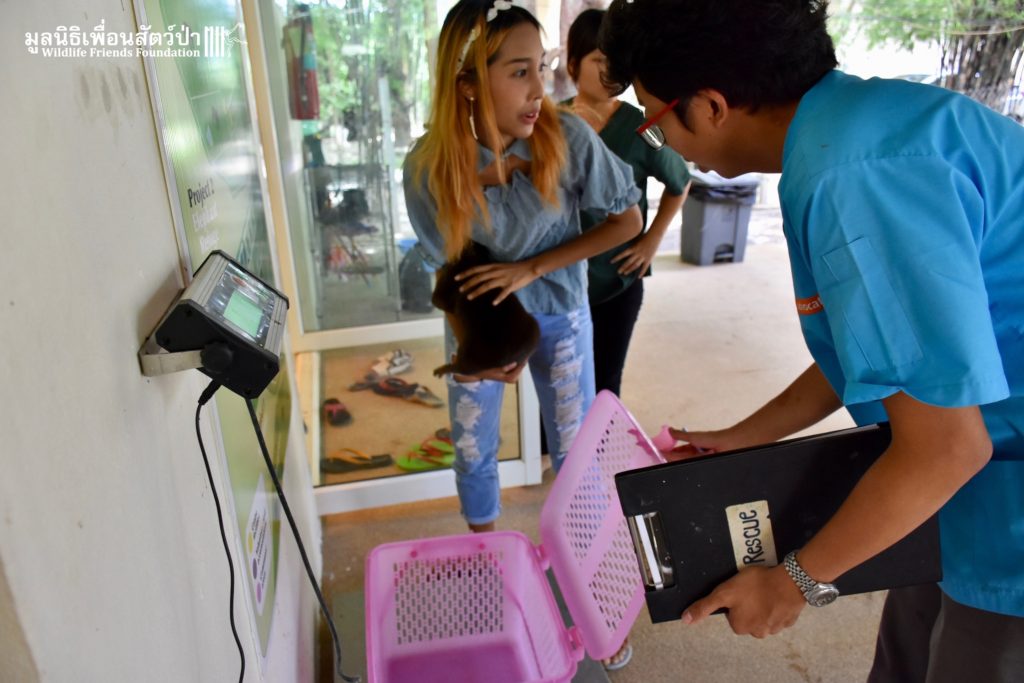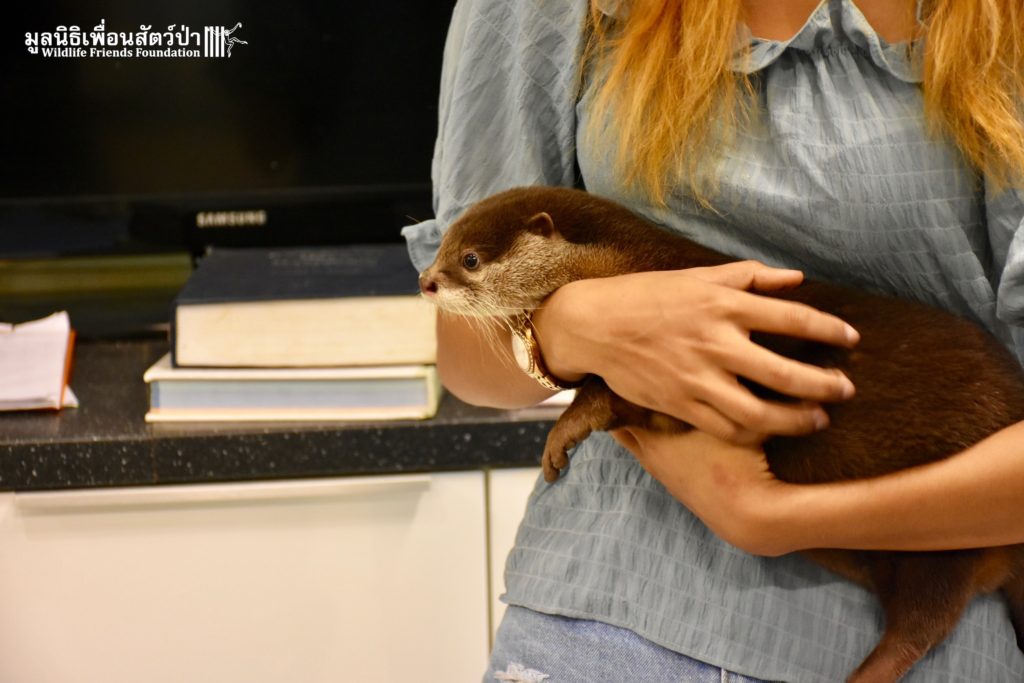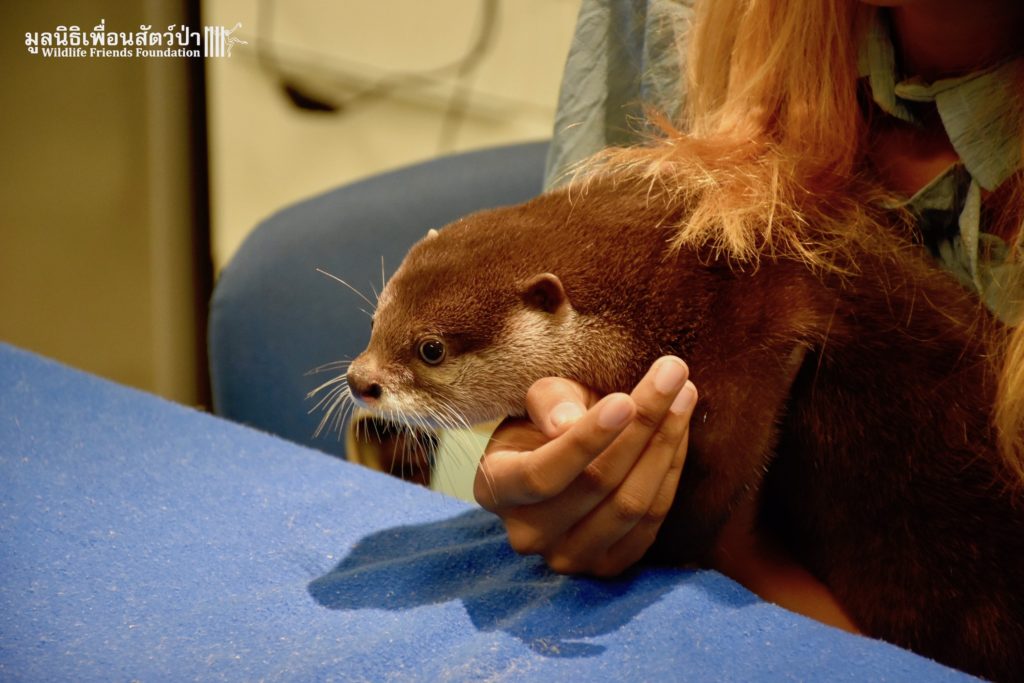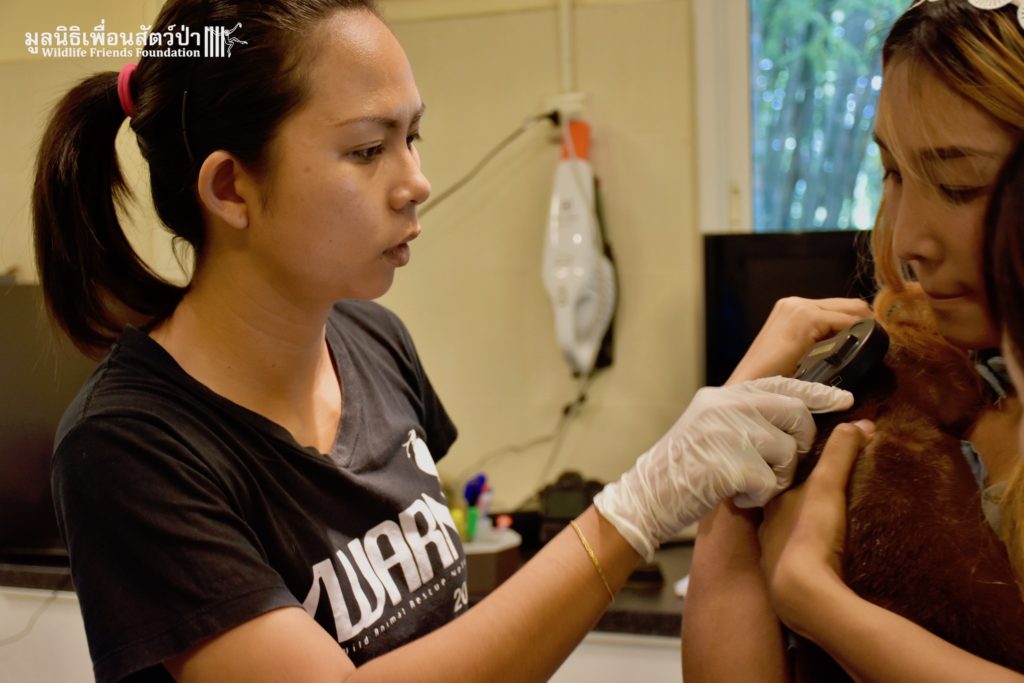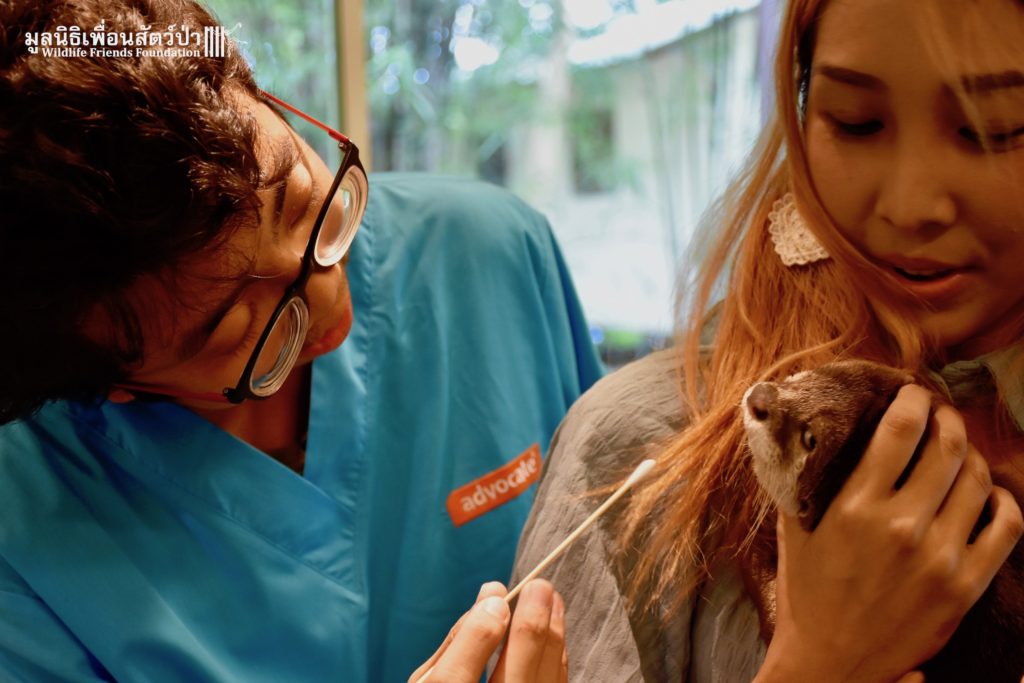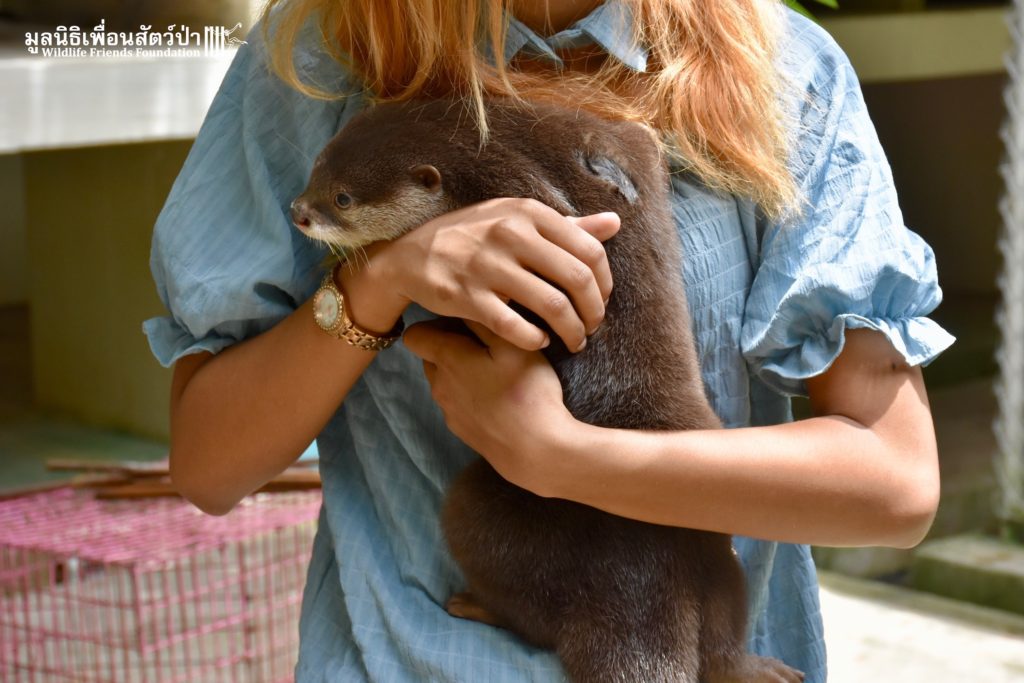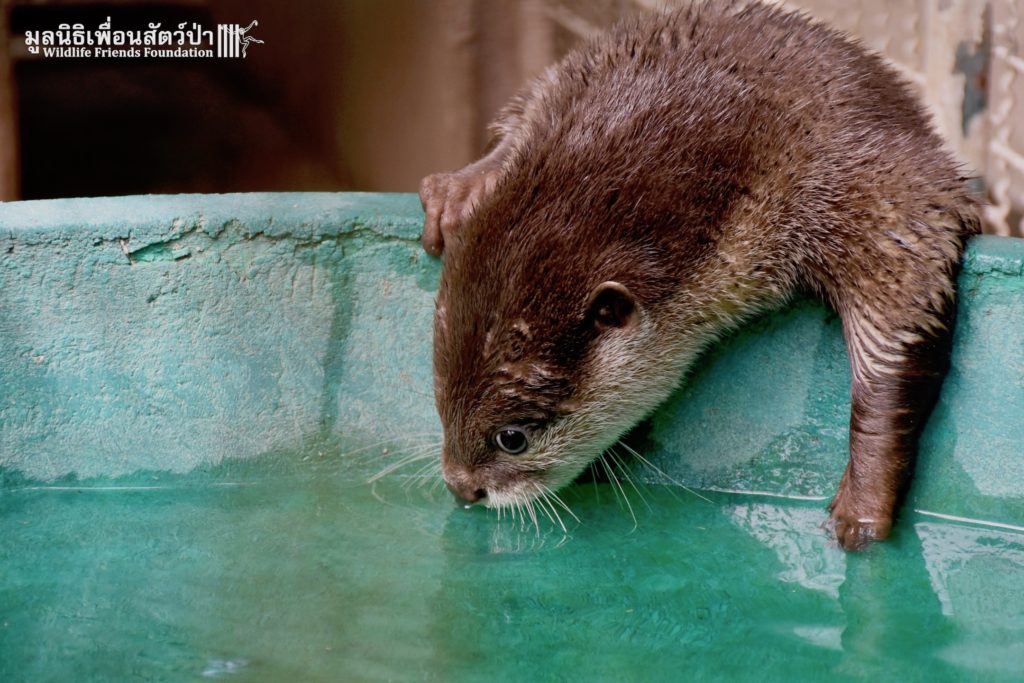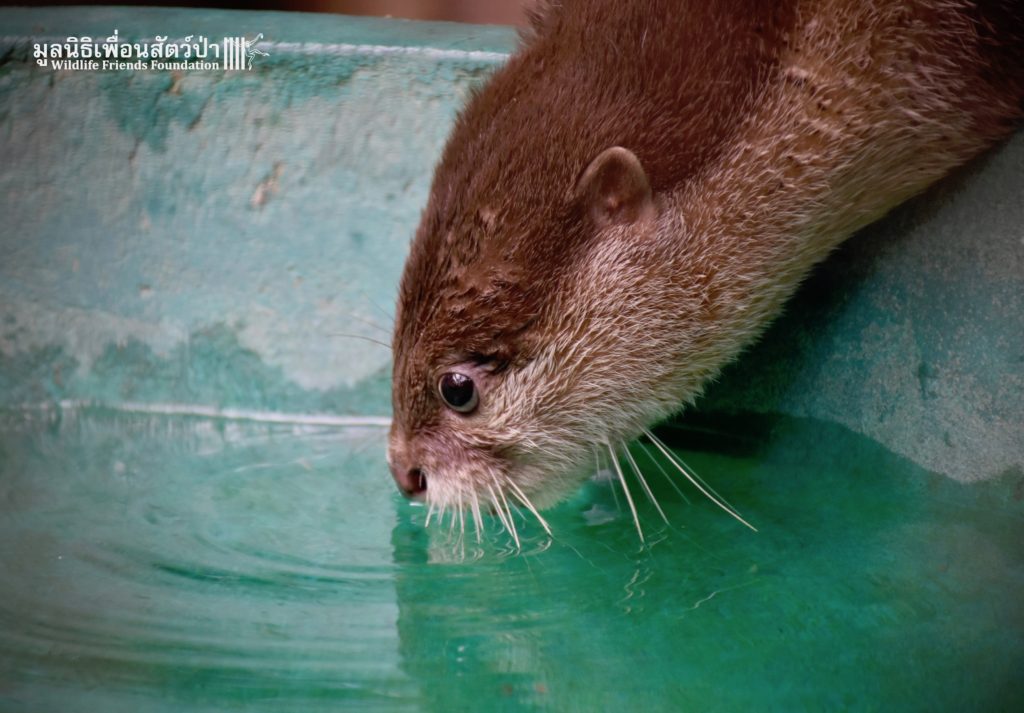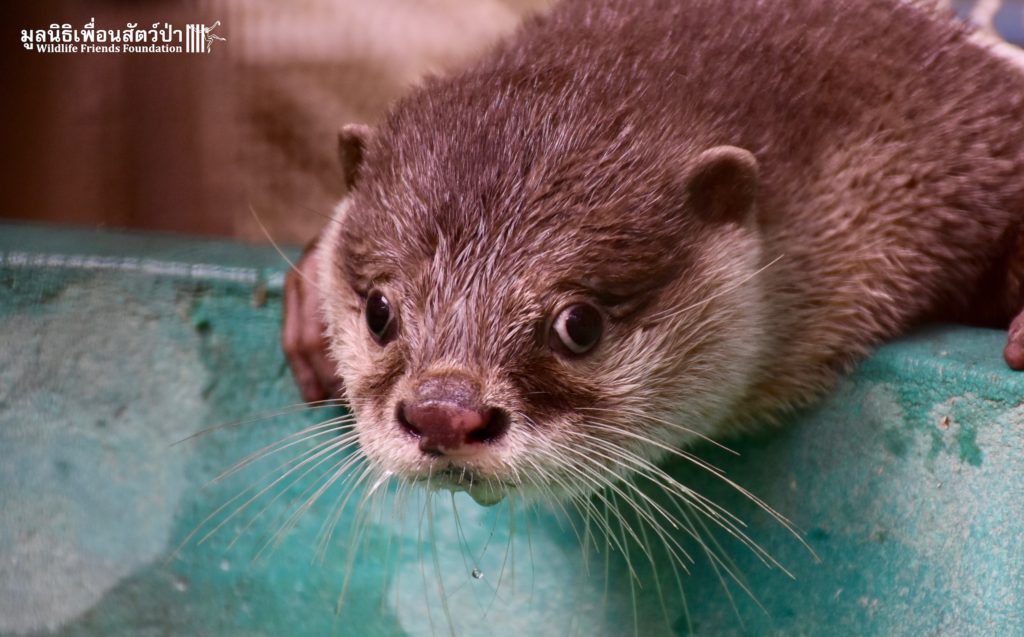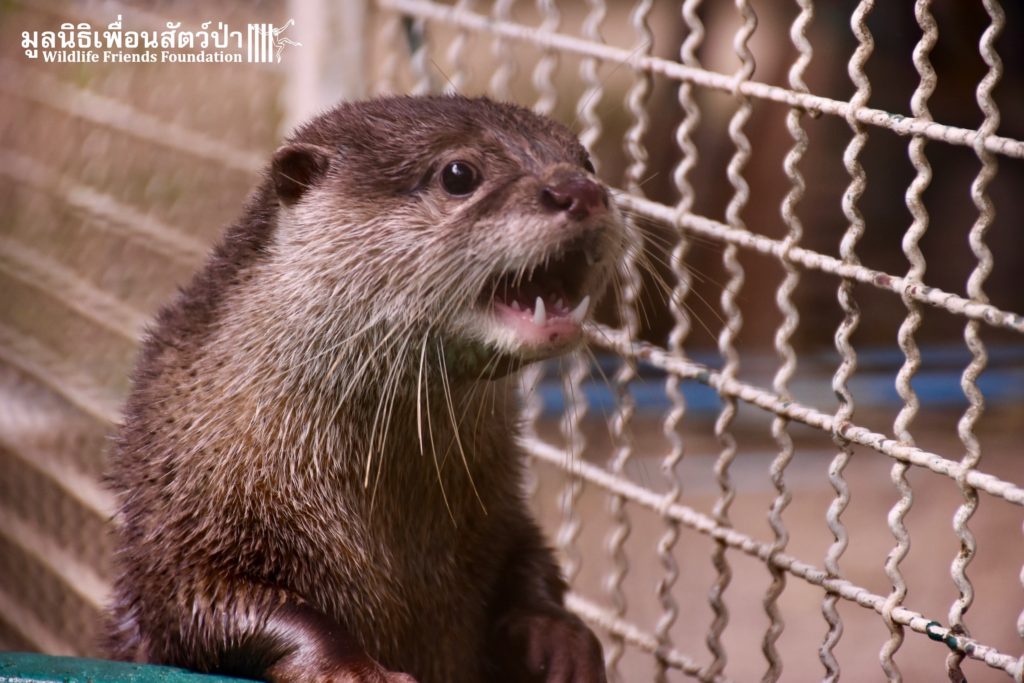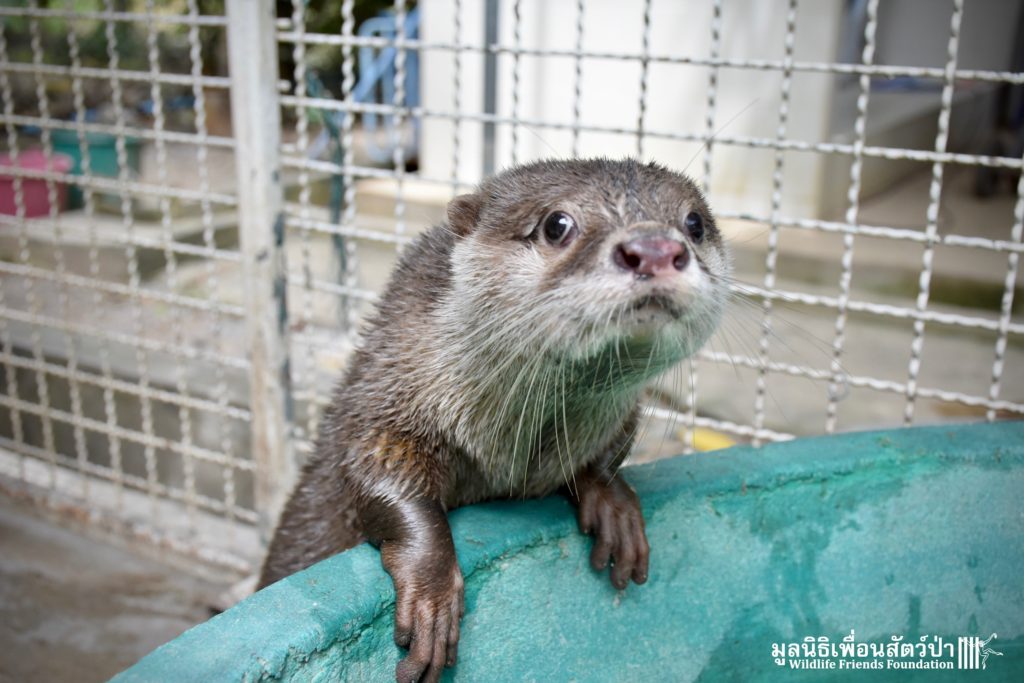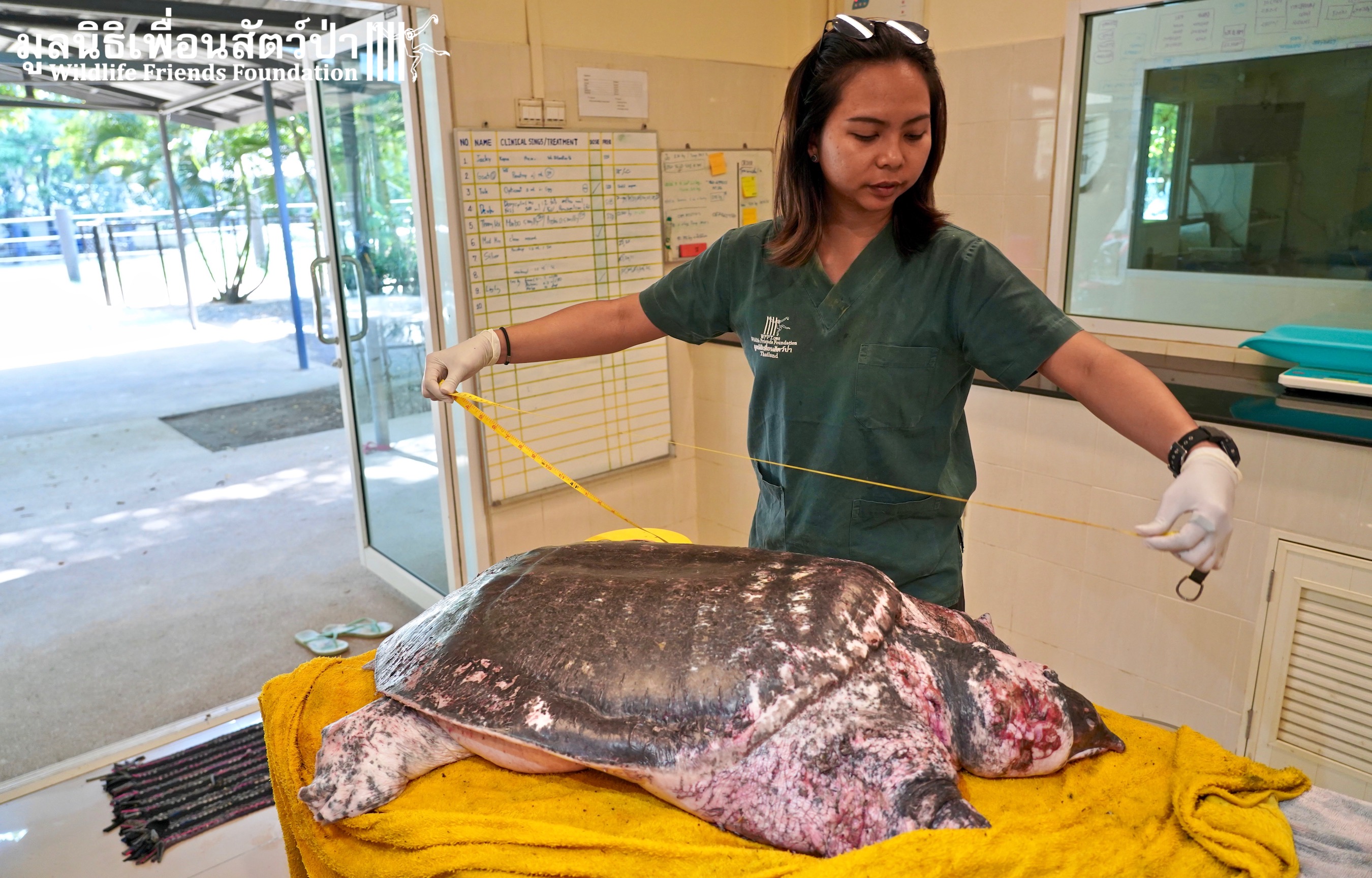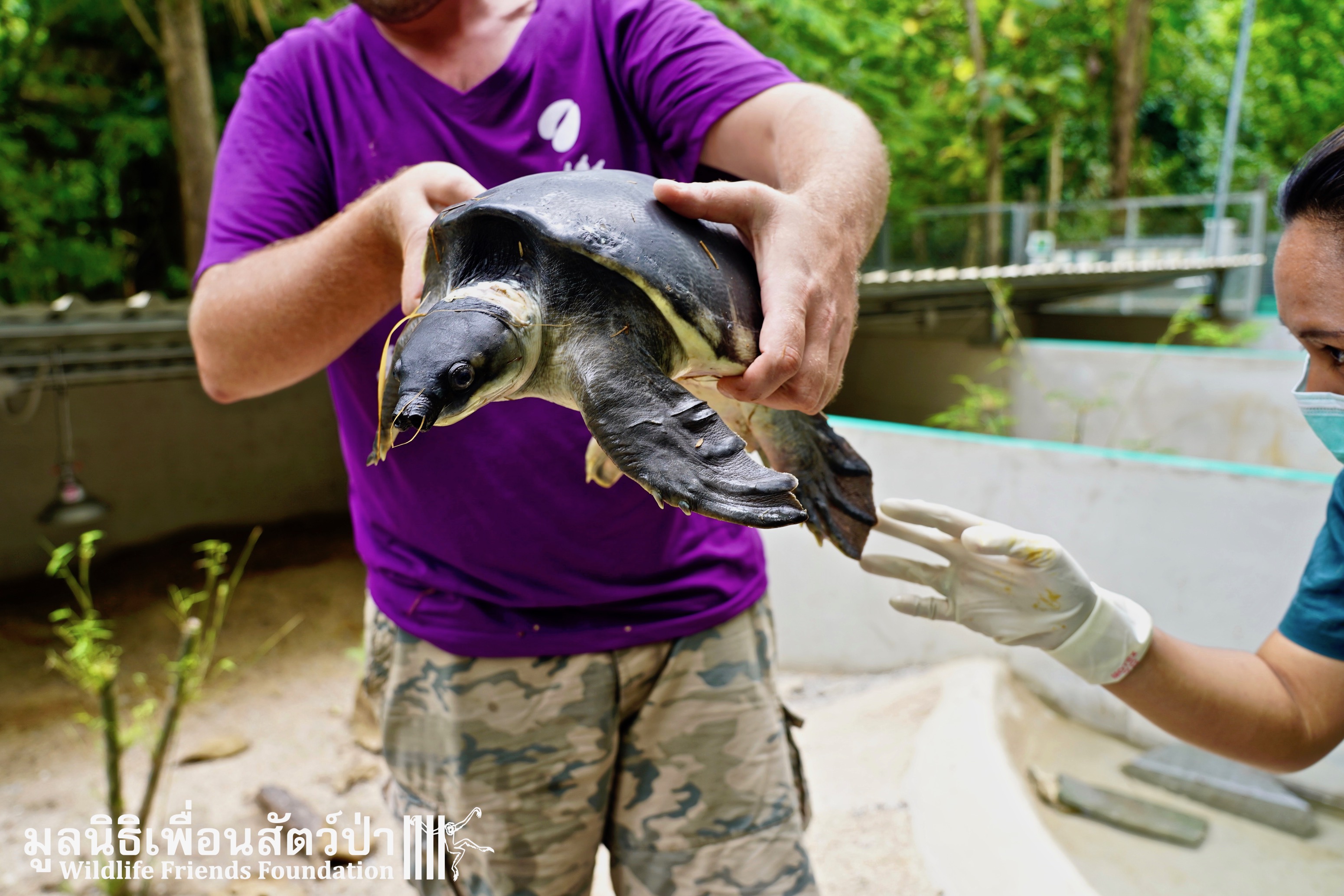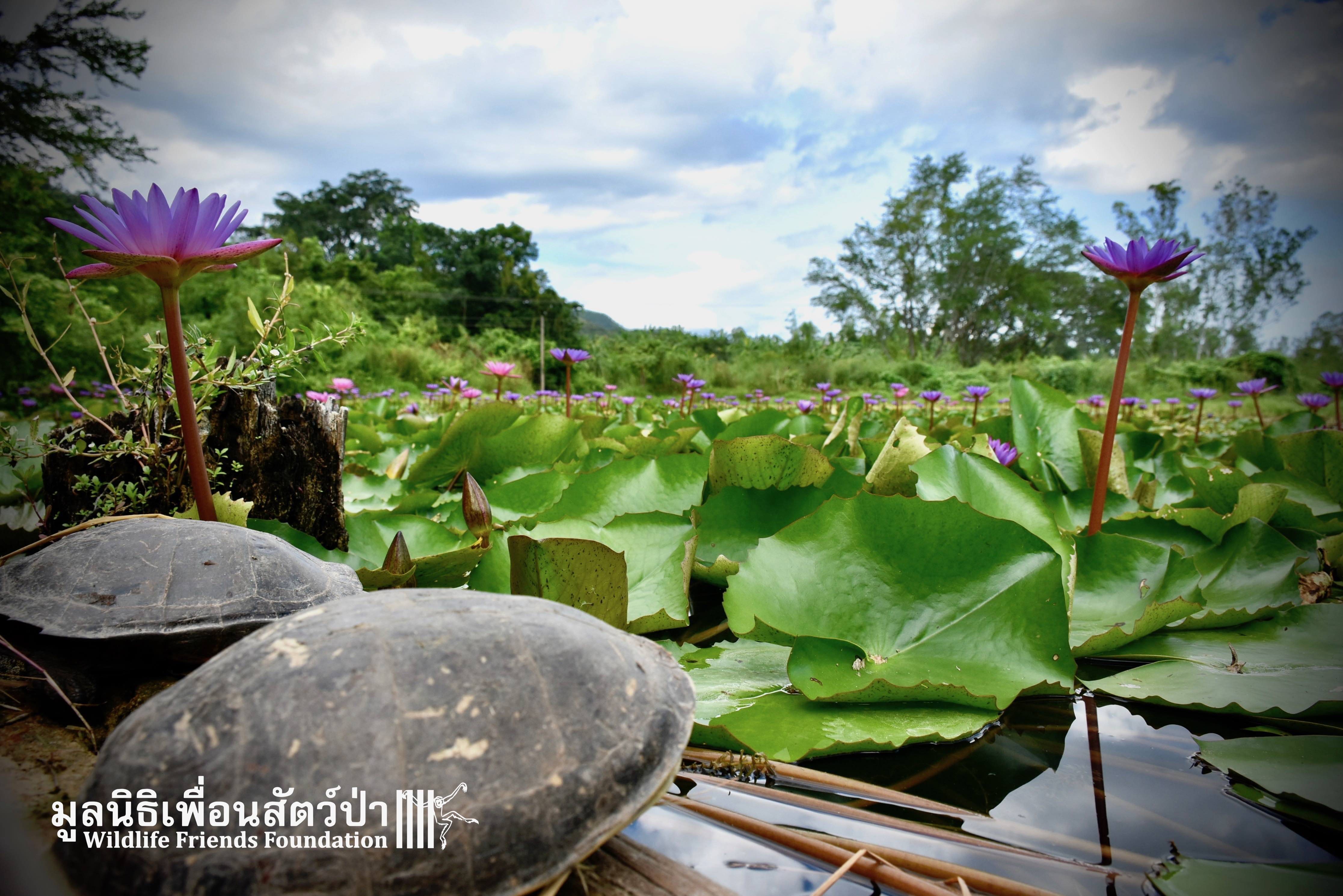WFFT had an action packed Saturday morning with a release and surprise emergency rescue! Some…
WFFT Welcomes Charlie the Otter
A few days ago we welcomed a new resident ‘Charlie’ a 5-month old oriental small-clawed otter (Amblonyx Cinereus). A lady brought him to the WFFT Wildlife Rescue Centre as an unwanted pet. Charlie’s mom, who was also kept as a pet, was mauled and killed by a domestic dog. Although a little over weight, initial veterinary checks indicate that he is in good health.
Asian small-clawed otters are the smallest otter species in the world and get their name from the fact that their claws do not extend beyond their digital pads. To communicate they have at least 12 different vocalizations used for greetings, contact, summons, also as an alarm signal. Otter mark their territory and in in the wild they eat crustaceans, amphibians, reptiles, insects, and live in complex social groups. They are highly social animals, and can live up to 15 years in captivity.
The oriental small-clawed otters are currently listed as Vulnerable (VU) on the IUCN Red List of Threatened Species. However, the remaining population is hard to estimate. Throughout South Asia, where the are found, the main threat to its continued survival is the destruction of its fresh water habitat, which includes, small streams, rivers, and rice paddies. It’s due to the extension of human territories and activities (the reclamation of peat swamp forests and mangroves, aquaculture activities along the intertidal wetlands). Another important threat and maybe the single most important is pollution. Aquatic pollution reduces the otters prey biomass and causes metal intoxication. The threat posed by poaching, for the fur trade and pet trade, is still very significant in many parts of South East Asia and will certainly count as a major threat that needs to be constantly monitored. Sadly, an increase in keeping these animals as pets has been seen throughout Thailand. We are hearing reports of otters ‘farms’ where many are being specifically bred for the pet trade.
We hope that once Charlie has gone through his quarantine period he will be able to meet and socialize with other otters in our care. We have seen a huge increase in otters in need of help this year. We are in desperate need to build another large open area for the otters as they cannot all live together. Please help us fund this by donating at https://www.wfft.org/donate/ or adopting one of our animals at https://www.wfft.org/adoptions/

